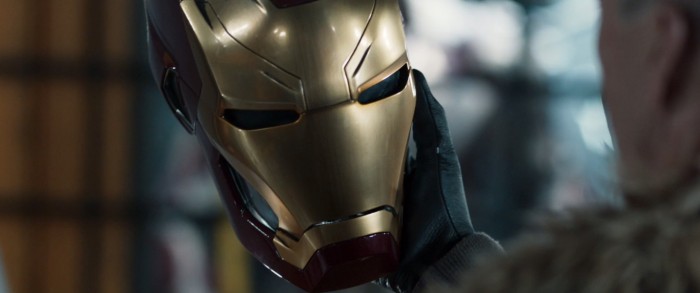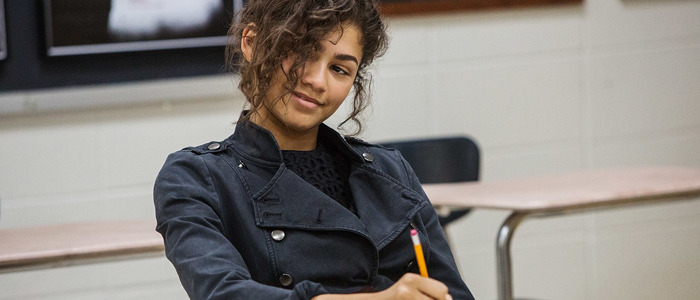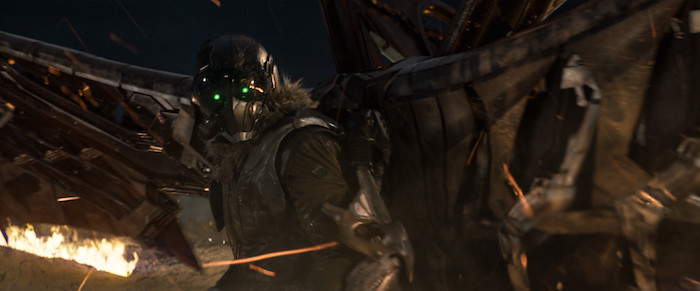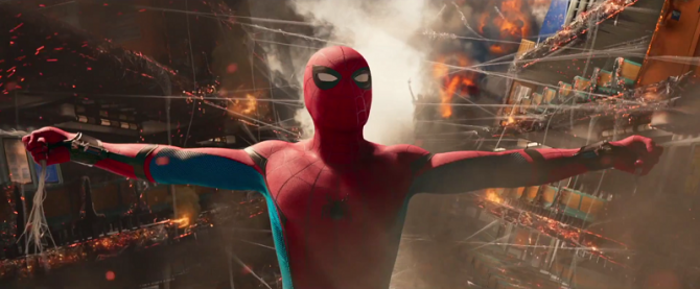What Hollywood Should Learn From 'Spider-Man: Homecoming'
Spider-Man should be the very symbol of franchise fatigue. It's a 55-year-old character who has been played by three different actors in six films within 15 years. The last three Spider-Man films were bloated messes largely devoid of super-fun dance sequences. Yet Spider-Man: Homecoming has brought freshness and joy to summer, and to a genre still trying to find its feet. Critics like it. Fans like it. Its future looks as bright as an Infinity Stone.
It would be unfair to mine it for certain lessons (Have a well-established, global brand to use in a movie! Get Marvel to take the creative lead on their own character, who's a well-established, global brand!), but there's something that every studio can learn from it, and a few tricks that apply beyond the superhero world.
Bring Freshness to Old Formulas
Everything has a formula. All genres. All studio films. Even indie films start falling into formulas once a few of them earn success. Given enough time (and rope) I'd be able to argue that even experimental films have them. The storytelling wheel hasn't been reinvented since Gilgamesh was doing heroic deeds and Aristotle was getting poetic.
In defense of the studios, it's insanely difficult to know when your cash cow's milk starts to curdle, but in the case of superheroes, it should be obvious that the same old song and dance will need some new steps. And a new milk metaphor. Studios dealing the world of superheroes have a catch-22 on their hands. It's simultaneously the hottest thing going and, unlike Westerns in the pre-WWII era, you only have a few opportunities each year to get them right. If you belly flop, you injure your character and rely on the future appetite of audience who are rightly skeptical that you can deliver.
Here's where the bigger problem for studios comes into play. Superheroes are bogged down in history, myth, and defining tropes that trying something new gets tricky. It risks alienating the very fanbase you're courting ("That's not MY Mandarin!") and on whose word of mouth you depend, but refusing to innovate risks boring everyone.
Spider-Man: Homecoming threads the needle by refusing the formula at every turn (and giving the superhero story arc to the villain). This is all obviously easier to write a few paragraphs about than to do, but it should at least give studios the license to escape the rut of how heroes are introduced to us. This possibility isn't unique to the character we've been introduced to three times in 15 years.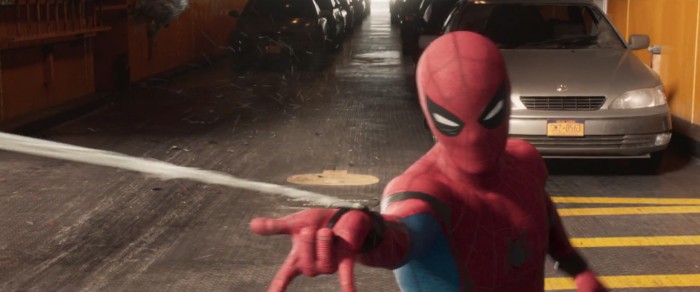
Make the Movie in Front of You
It's weird that this has to be said, but the desperation for franchises is palpable. It didn't exactly sink Marvel, but everyone (rightly) hates half of Iron Man 2.
Homecoming is slightly clunky at times, but it's streets ahead of many films who put the next eight movies that won't happen ahead of the one we've sat down to watch (*cough*Amazing Spider-Man 2*cough*The Mummy*cough*). Characters from potential future movies don't waltz into the dance with neon signs attached to them. Homecoming even downplays Zendaya's character after presenting her as an equal co-star. Ditto for Betty Brant, who may or may not play a significant role later on, but who Angourie Rice brings to fantastic, eye-rolling life.
It's a little crazy that Marvel crafted a winning formula for setting up an extended universe, and no other studio has copied it. Instead, they're all trying to make their own version of Iron Man 2. If you're angling for a big tent franchise, you can't simultaneously use an audience for market research and shove a character down our throats, yet that's what many studios do. Don't get ahead of yourself. Listen to us, and we'll help you decide what we want to see more of going forward.
Or you could just press ahead with Johnny Depp as the Invisible Man or whatever.
It's also a bit ironic that a film that's technically the 16th in a series is still treated (smartly) as an introduction. Studios, please, make a good movie first, and if it connects with an audience, you'll be cleared for takeoff.
Find an Enthusiastic Ambassador
This gets into the weeds a bit (or at least it gets away from the writing and storytelling parts of cinema).
Tom Holland is the MVP of Spider-Man: Homecoming. Not only was he the right person for the role of Peter Parker – awkward and funny and shy and audacious – he was also the right person to sell Spider-Man to an audience with a wary eye. He was inexhaustible on the press circuit, even after giving 110% to lip syncing/rain-dancing to Rihann's "Umbrella" (and if you don't think that was marketing for Homecoming, you don't fully understand modern movie marketing). He sold himself while selling the movie.
That's a great two-for-one deal in an era where who plays your superhero doesn't fully matter. Case in point: non-household-name Tom Holland carrying Homecoming not because he's super famous, but because he was right for the role, and the character does the heavy lifting on getting butts into seats.
Work Hard to Make Diversity Look Effortless
Another element of genre fatigue or general audience ennui? Seeing the same people, doing the same things, year after year. We've reached an age where audiences are visibly sharing their irritation at Ghost in the Shell's whitewashing and cheering Homecoming's ability to toss non-white actors into the mix (which is cool) without puffing up their chest about it (which isn't).
This despite the inevitable butthurt nonsense that came last year when Zendaya was cast in the role of Mary Jane. Sony/Marvel cast her, weathered that brief, insignificant backlash, and they got an excellent performance as a result. This ties back in with the first lesson of this piece: "Mary Jane was never black in the comic books" isn't a good reason not to have a black Mary Jane in the movie. Continually rebooting stories and characters that are a half-century old without considering an update on identity is one way to stay behind the curve of representation. It's also a good way to psych yourself out of hiring a tremendous actor. Zendaya was 1000% right for that role, but "Mary Jane always being white" would have kept her from it.
Plus, if you're gonna show multicultural New York City, you can't be stuck in 1955.
Give Your Villain Humanity
It's perfectly plausible that most Marvel villains suck because their movies focus a giant amount of screentime on the heroes. How can you emerge with more than one dimension if you're only in three scenes that don't involve punching?
Still, that doesn't dismiss the truth that most Marvel villains suck. Vulture does not. He's a fully realized character both on the page and in the hands of Michael Keaton who, like all other MCU baddies, adds gravitas to the figure and who, unlike most other MCU baddies, has something to work with in the script.
It can't be done with all villains, but Vulture/Adrian Toomes has depth because we can relate to him, his plight, and his response to it. Taking liberties with the classic comic character (because they can and should), co-writer/director Jon Watts and company recast Toomes as a blue collar boss who gets boned by Tony Stark after the billionaire sweeps a post-Battle of New York clean-up gig out from under Toomes' feet. Armed with a little Chitauri tech, he's able to build himself a swell flying suit, craft some weapons, and then find the natural black market for those dangerous goods. He's a villain...who got to where he's at by doing exactly what Tony Stark did, on a much smaller scale.
So, more correctly, he's an antagonist. We feel for him, we empathize with his desperation, and we want to believe that we wouldn't have made the same choices, but we can't fully dismiss them.
It's the villain's lot in life to be in a different movie than everyone else. As we swing along with the main storyline, the villain pops up in an isolated subplot solely so we can see how their plan is progressing. It's difficult in any movie to bring those stories together, but it helps immensely if you give the villain something realistic to fight for. Too often, they're in it for power and money, but we don't get to see why they obsess over those things. The Why is almost always missing from the story, even as it helps us understand the villain, connect with them, and create greater context for their fight with the hero.
Short of that, at least make them worthy adversaries so the hero has a real struggle.
It's Okay to Mix Fun and Danger
There's a debate raging about whether superhero movies should be fun or serious. The answer is both. Not everything is a Cormac McCarthy novel. In fact, there are even moments of joy in The Road. If a movie about the soul-crushing isolation and doom in a post-apocalyptic world can find optimism in a random can of Coke, so too can your movie about be-spandexed heroes punching each other find some levity.
Showing us what your superheroes live for is part of defining the stakes, so if they're dour to the point of despair, it's hard to understand what they're living and fighting for. So, even if your movie only has .01% levity, at least give us a shard of light shining through to create the background for why the hero is doing what he or she is doing.
At the same time, if you're dealing with death and destruction, and want it to be taken seriously, you have to show us the honest emotional aftermath. Homecoming is more blissful than burdensome, but it doesn't take that path arbitrarily. No one dies when Spider-Man sucks at being Spider-Man (which he does a ton), but his recklessness has the consequence of him losing the suit that helped him (he thought) be a hero. It also doesn't deal with Uncle Ben's death or what that means to Peter. How could it? After we'd seen it twice in such a short time. With all the real estate that story would take up. Homecoming is devoid of mortality as a theme, which means it will have to do some serious work if it wants to get on par with Spider-Man 2, but it's also totally fine as a joyride through Queens.
And yet, Peter's high school friends almost die, Peter almost dies, and he almost kills a man. It's not all wacky good times building the LEGO Death Star. It's a mix of tones.
Finding that balance is strenuous work (throughout writing, directing, and editing), but it's worth it to find. The alternative is having your movie be a slog through self-seriousness or a forgettable flit without human stakes.

